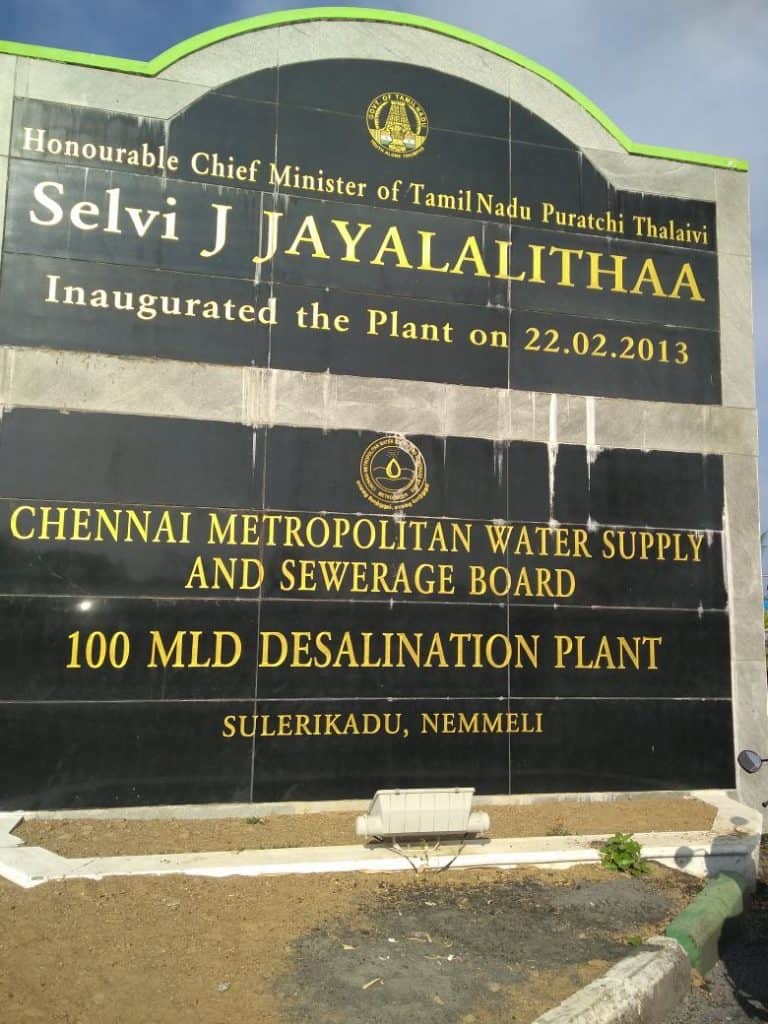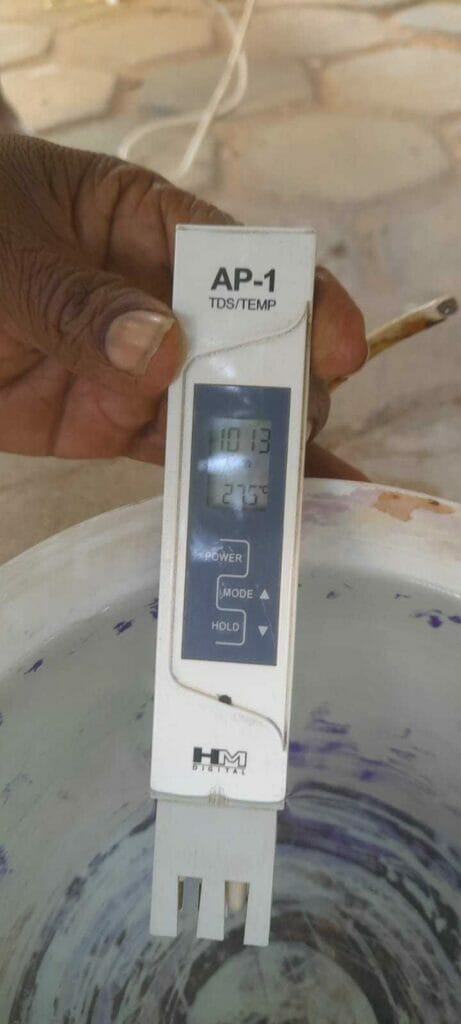Chennaiites have a complicated relationship with water. It seems like we either have too much or too little depending on the vagaries of the yearly monsoons. Which is why when ten years ago. we began getting water from the Nemmeli Seawater Desalination Plant, we heaved a sigh of relief as it seemed like a solution to our water woes.
From this desalination plant in Nemmeli, areas like Neelankarai, Kottivakkam, Besant Nagar and Tiruvanmiyur got their daily supply. While things looked promising at the start, we have found that lately the amount of Total Dissolved Solids (TDS) in our water supply started increasing slowly.
TDS refers to the concentration of organic and inorganic substances dissolved in water.

Read more: Irregular water supply not just a seasonal issue for many Chennai families
Spotting high TDS in water
The residents of Valmiki Nagar in Thiruvanmiyur, where I reside, felt that since the water we got from the desalination plant tasted saltier than usual, we should measure the TDS.
In addition to this, there has been an increasing number of issues faced by residents with all of our gadgets that used water and the plumbing in our homes. There have been frequent instances where appliances have given way.
When technicians come to set up systems like RO at our homes, they tend to measure the TDS and let us know if it is high or not. So, many residents of our locality became aware of the high levels of TDS in our water supply.
Residents believe that the issue stems from the desalination plant not functioning as it should. By World Health Organisation (WHO) standards, the safe limit of TDS is 500 ppm but the water we have been receiving has consistently had TDS from 800 ppm to 1200 ppm.
Pleas to CMWSSB to act on high TDS in water
For the past eight months, we have been complaining and petitioning the Chennai Metropolitan Water Supply and Sewerage Board (CMWSSB). We have been relentlessly calling our Metrowater Assistant Engineer and Area Engineer to solve the problem of high TDS in our water.
The only consistent response we have received is that the desalination team will be notified. But little has changed with the quality of water received by us during this time.
Around 35 people from Valmiki Nagar raised this issue online and 100 of us gave a signed petition to the MD of CMWSSB to amplify the problem.
With a lot of effort on our part came some action. The desalination plant in Nemmeli was asked to flush the water with higher TDS and avoid supplying them to households. But even after this move, the TDS has been fluctuating between 800 ppm and 950 ppm a few weeks ago, still beyond the safety limit of 500 ppm.
Read more: Why residents in northern parts of Chennai throw away pots of water every week
Impact of high TDS in water
With high TDS levels, electronic appliances that use water are getting corroded. The reverse osmosis machines, washing machines, geysers, and plumbing in the houses in our area have been facing frequent issues. Residents have been forced to spend out-of-pocket to change or repair these appliances often.
The water we receive is also more turbid and yellow due to the high TDS levels. Almost every house has had to install a filtration system to process the water, which again increases the expenditure.
Along with affecting electrical appliances, water with high TDS is also a health hazard. Consuming high TDS water for a long time can expose us to chronic health conditions. High TDS also could mean the presence of heavy metals.
Moreover, with a typhoid outbreak in Chennai, residents are wary of consuming water from the desalination plant.
Unless we know what is causing the high TDS, it is hard to find a permanent solution.
Despite the issue being escalated and the residents registering their grievances, little has been done to address it. With much of the southern part of Chennai receiving water from the desalination plant, the source of the high TDS must be identified in order to ensure potable water is being supplied to residents.

What’s the best TDS for drinking??